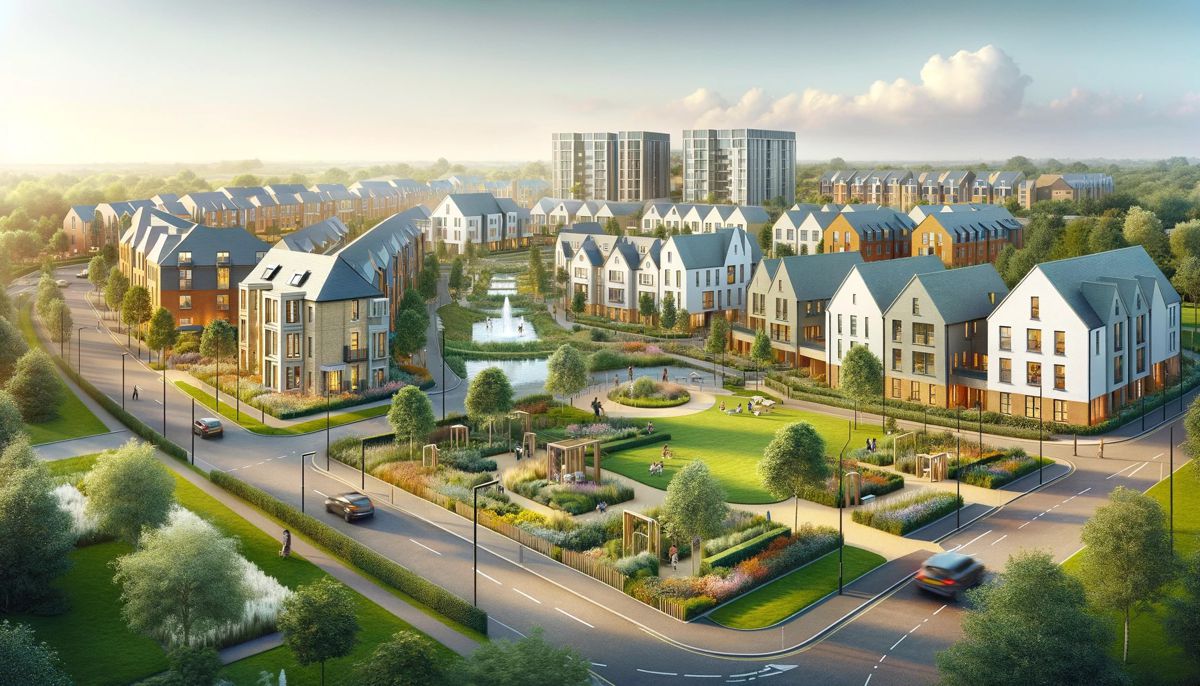The £2.52 billion acquisition of Redrow by Barratt Developments
In a bold move that’s caught the eyes of construction aficionados and market analysts alike, the recent £2.52 billion acquisition of Redrow by Barratt Developments is creating waves across the UK’s construction landscape.
Dubbed as a “uniquely compelling opportunity” by the parties involved, this merger is poised to reshape the future of homebuilding in the UK, promising to deliver high-quality, sustainable homes and communities.
As the dust settles, industry insiders and stakeholders are keen to dissect what this consolidation means for the market, the challenges ahead, and the potential ripple effects on the nation’s housing needs.
A Strategic Alliance Amidst Market Turbulence
At the heart of this merger lies a strategic response to the tumultuous times facing the UK’s housebuilding sector. Both Barratt and Redrow have felt the pinch, with significant drops in pre-tax profits reported in the latter half of the previous year. This financial backdrop, characterized by soaring cost inflation, skilled labour shortages, and falling house prices due to higher interest rates, paints a picture of an industry at a crossroads.
Adding to the sector’s woes is the contentious stance of Michael Gove, the housing secretary, whose policies have been described by some as a one-man war against the housebuilding industry. From pushing for the industry to foot the bill for safety measures post-Grenfell Tower tragedy to obstructing housing developments and easing off on housebuilding targets, Gove’s policies have left many in the sector feeling beleaguered.
In an industry publication, Steve Morgan, Redrow’s founder, lamented the government’s lack of support for housing developments, suggesting a pivot towards a “generation rent” under the current regulatory environment. This sentiment underscores the frustration felt by many within the sector at what they see as governmental indifference towards homeownership.
The Business Logic Behind the Merger
This merger, then, can be seen as a tactical manoeuvre. By combining forces, Barratt and Redrow are not just pooling resources but are strategically positioning themselves to navigate the complexities of the current market and regulatory landscape. Analysts, including Aynsley Lammin of Investec, view the merger as a sensible move, especially given the challenging planning and land backdrop.
The anticipated benefits are multifaceted. Beyond the significant cost savings projected from streamlined operations, the merger promises enhanced buying power and the fusion of Redrow’s housebuilding prowess with Barratt’s extensive national coverage. This synergy is expected to bolster the new entity’s capacity to deliver a diverse range of housing options, aligning with the varied demands of planning authorities and consumers alike.
Navigating the Road Ahead
But what does this merger mean for the UK’s housing crisis? David Thomas, Barratt’s CEO, has pledged that the combined entity will lead to the creation of more high-quality homes that the country desperately needs. The optimism is grounded in the belief that the merger will enable the delivery of a broader spectrum of housing, from first-time buyer homes to luxury properties.
The strategic integration of Redrow homes into Barratt sites (and vice versa) illustrates the potential for increased efficiency and output. Barratt’s previous success in rebranding and integrating developments, such as the Grey Towers Village project, provides a blueprint for how the merged entity might achieve its goals.
However, the path forward is not without its hurdles. The UK’s planning regime, now more restrictive than ever, poses a significant challenge to increasing housing output. The merger’s success in navigating these regulatory waters will be a critical factor in its ability to meet its ambitious housing delivery goals.
A Twist of Irony
Interestingly, the merger’s potential to unlock housing development opportunities may find an unexpected ally in political shifts. The prospect of a Labour government reinstating top-down housebuilding targets could ironically provide the boost that the Barratt Redrow entity needs to thrive. Such a development would be a twist of fate, especially considering Steve Morgan’s historical financial support for the Conservatives.
As Barratt Developments and Redrow join forces, the UK’s housebuilding sector stands at a pivotal juncture. This merger represents not just a strategic alignment of two industry giants but a beacon of hope for addressing the nation’s housing needs. With a commitment to quality, sustainability, and diversity in housing offerings, the newly formed entity is poised to play a crucial role in shaping the future of UK homebuilding.
Navigating the regulatory landscape and market challenges will require not just strategic acumen but also a collaborative effort with policymakers to truly unlock the potential of this merger. As the industry watches on, the foundations laid by this merger could well determine the trajectory of the UK’s housing landscape for years to come.
















